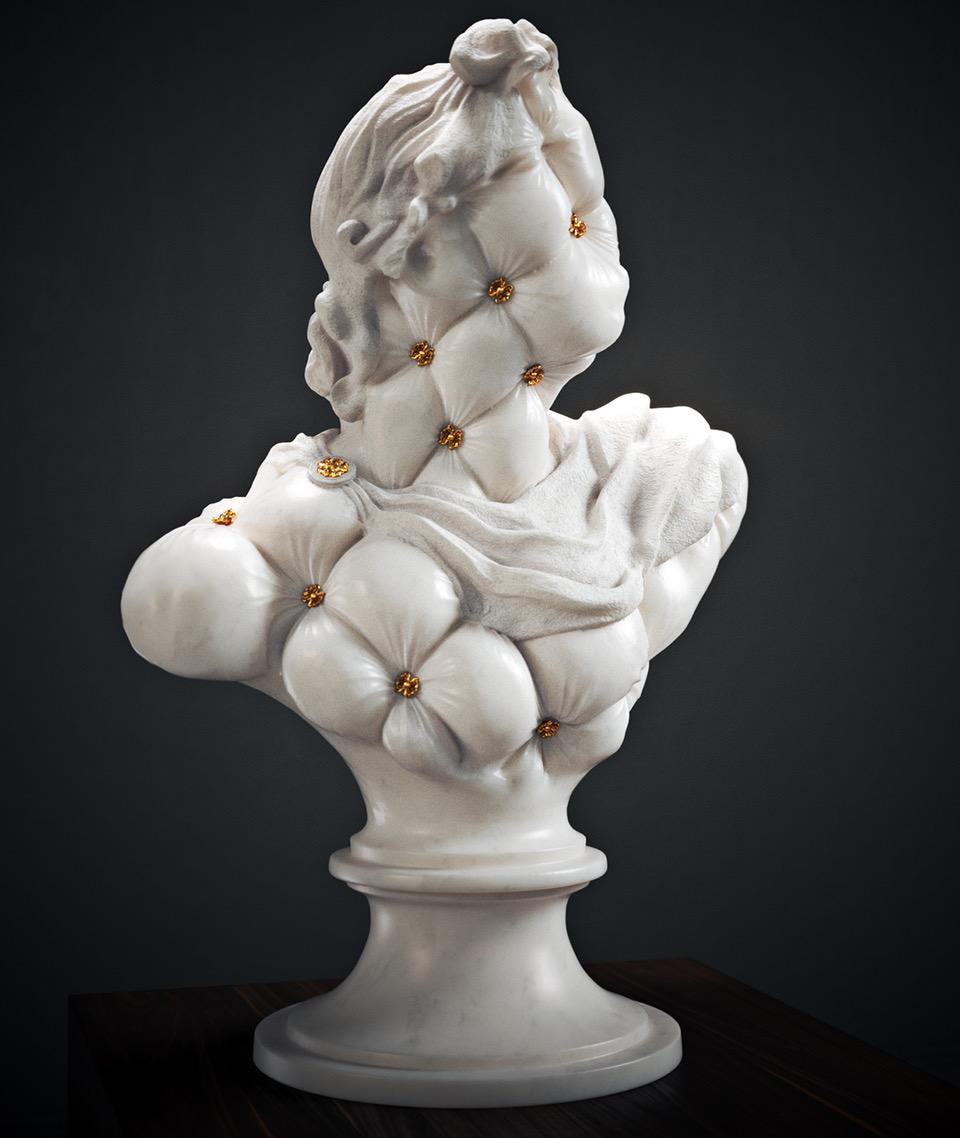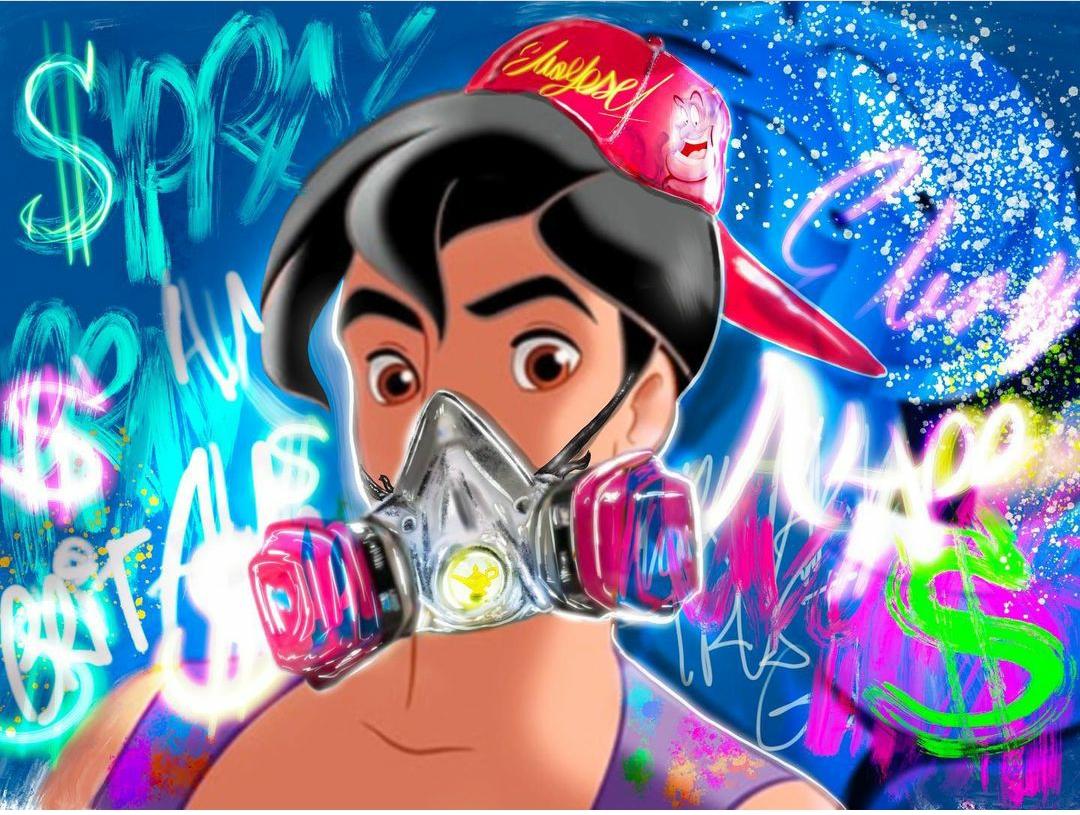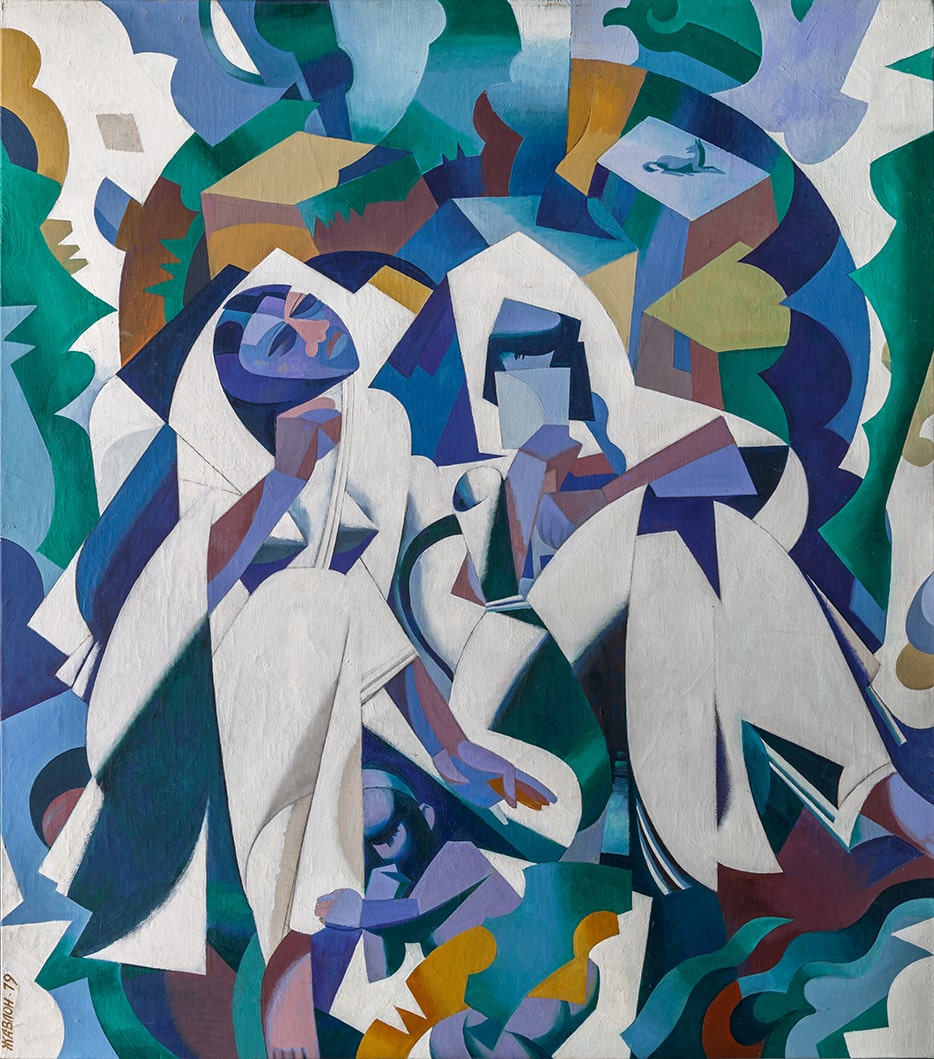
One of the most prominent figures from the Italian world of art and culture, Flavio Lucchini, showcases a series of his artworks at the new Oblong Contemporary Art Gallery on the Blue Waters Island from 6th February – 10th March 2020. The exhibition titled, ‘From Fashion to Art, the Vogue Lesson’ features works by Lucchini including classics and unpublished works of the artist, all of which together offer a fusion of Flavio’s professional journey to date and his continuous search for the meaning of the dress, created with different mediums and styles, including bronze resin, steel sculptures, paintings, bas-reliefs, digital-art and dematerialization themes through conceptual art, keeping the message constant.

“The women’s dress can convey beauty, irony, boldness, eroticism and many other emotions. They have represented a major part of my life and I have never considered them as simple shells, from the divine haute couture dresses, to miniskirts, to the hippy, folk, punk dresses and even burqas, with their ethical and aesthetic implications. Dresses are a tool which the world can witness the changes and aspirations of society, together with the celebration of beauty, femininity and creativity.” – Flavio Lucchini

Flavio Lucchini’s artworks highlight the close link between art and fashion, thanks to his background as an avant-garde art director and publisher of L’Homo Vogue, Casa Vogue, Vogue Bambini and Lei-glamour in the 60’s and 70’s in Italy. He has seen trends fade away with every passing season and would always want to fix them with bronze, steel and resin in order to save them from their untimely destiny and make them last forever. A world of his own, where the dress goes back to be the enchanted and creative emotion as it was in his publishing days, Flavio’s exhibition at the Oblong gallery transforms fashion into art and puts art into fashion.

“I like to move from classicism to new pop, in a sort of direct line, right between Canova and Jeff Koons. I’m interested in the mystery and magic of fashion. To glorify it and at the same time to desecrate it” – Flavio Lucchini.




